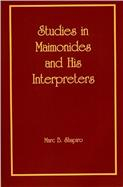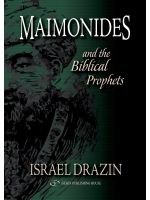Kosher Bookworm: The Maimonides Legacy
The Kosher Bookworm
by Alan Jay Gerber
Issue of January 15, 2010/ 29 Tevet 5770
Last Wednesday, January 6th was the 806th yahrtzeit of the Rambam [Maimonides]. Some scholarly literature on this most noteworthy of rabbis was recently published.
Among the most endearing elements of the Rambam’s legacy is the iconoclastic nature of his theology, absent the mystical elements that are so common with other Jewish theological greats.
In a two-volume series on the Rambam’s place in Jewish theological history, Rabbi Dr. Israel Drazin goes deep into the true role that Maimonides played in shedding various mystical nuances that have plagued the Jewish religious tradition.
The first book is titled, “Maimonides: The Exceptional Mind” [Gefen Publishing, 2008]. Drazin, without hesitation, deals with theological sacred cows and how Maimonides viewed them in light of his own “enlightened” wisdom.
He examines Maimonides’ views on prophecy and angels, the Shekhinah’s rationale, and the role of dogma in Jewish religious belief; and with similarities between Maimonides and ibn Ezra, Saadiah Gaon, ibn Caspi and Spinoza. Drazin goes into great detail over Maimonides’ take on topics such as the role of the shofar in scaring off or confusing the Satan, the true origins of the Zohar, kapparos, tashlich, kiddush levanah, and certain mystical aspects of the Pesach Seder. He also includes essays about how certain elements of Christian belief found their way into Jewish practice. This work is fully footnoted and annotated for the reader’s benefit.
Dr. Drazin’s second volume is titled, “Maimonides and The Biblical Prophets”[Gefen Publishing, 2009]. It looks at how Maimonides understands the prophets’ mission in Jewish theology and history, did recorded miracles such as the splitting of the sea, the falling of the walls of Jerico and the sun standing still for Joshua really occur, in Maimonides’ view? Hmm...
Other issues Drazin examines through the prism of the Rambam’s theology include after death experiences, are there prohibitions to suicide, and should children really be punished for their parents’ sins?
Dr. Drazin openly states to his readers that many of the beliefs that we have come to accept today as part of normative Jewish belief have no real and rational basis in Jewish law and theology. This goes to the heart of his writings, and make for not only interesting reading but for interesting learning, to help the average Jew clarify for himself the true nature of our religious beliefs.
And Drazin is not alone.
Briefly, I bring to your attention two other recently published books that touch upon Maimonides’ true role in clarifying and de-mystifying our religious beliefs.
Dr. Marc B. Shapiro’s “Studies in Maimonides and his Interpreters” [University of Scranton Press, 2008] and Dr. Menachem Kellner’s “Science in the Bet Midrash: Studies in Maimonides” [Academic Studies Press, 2009] both go further in helping not only clarify the role that Maimonides plays in Jewish theological thought but to further enhance our own perspective as to what truly constitutes our religious beliefs, in a rational and clear view of those beliefs and practices.
Shapiro’s 45 page essay, “Maimonidean Halakhah and Superstition,” goes a long way in helping to elucidate some of the finer points in Jewish law. These might otherwise be confused with elements of false mysticism that may be of heathen origin, if not worse.
Kellner, delving even deeper into this genre of theology, looks at Maimonides’ views on science and Torah, contrasting his contradictory views in the Mishne Torah and his Guide, as well as on hot button issues such as Jewish chauvinism, the chosen people concept and universalism.
In what promises to be a really cold winter, reading these works will help you survive the cold with some good, warm to hot reading for your fireplace pleasure. Read, learn and enjoy from the intellectual font of three of the most superb Jewish scholars of our time.

 47.0°,
Mostly Cloudy
47.0°,
Mostly Cloudy 







